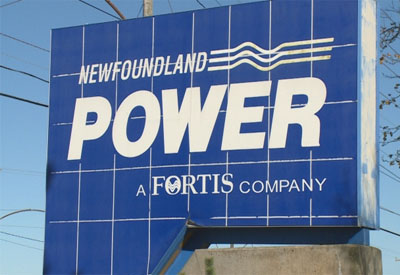Newfoundland Power Receives Customer Pressure that has Prompted the Province to Consider Reviewing Privacy laws

November 9, 2017
The provincial government is open to exploring changes to privacy laws after a number of people complained about Newfoundland Power using their information without consent.
During Question Period on Tuesday afternoon, Justice Minister Andrew Parsons said he is open to look at changing laws.
“When we talk about something so important as power and people having access and being disconnected, it is something we take concern with,” he said. “Happy to look at it.”
The minister’s comments came in response to a question from NDP housing critic Gerry Rogers, who took a stance against Newfoundland Power after a CBC News story last week.
Several people complained the utility company got hold of their private information without consent and used it to have their power disconnected.
In each case, the utility company called landlords and asked who was living in their rental units. When it was disclosed a person with an outstanding electricity bill was living on the premises, power was either cut or threatened to be cut.
Three people spoke with CBC News and said they were told their electricity would only be turned back on when the bill was paid or the tenant was evicted.
Newfoundland and Labrador does not have a law against this sort of disclosure, although Rogers said provinces like British Columbia and Alberta require the consent of the tenant before information is disclosed to a debt collector.
“As with any valid concern that’s brought to my attention, or to our attention, we are always open to considering legislative reform and ensuring our laws are there for the best of all people in the province,” Parsons responded.
Complaint filed with federal authority
Kate Underhill, who shared her experience with CBC News last week, has since filed a complaint with the Federal Office of the Privacy Commissioner.
She was living with her boyfriend in Mount Pearl up until last week, when Newfoundland Power disconnected their electricity.
Underhill owes just under $1,500 to the utility company, but said she is on a payment plan.
The couple’s landlord disclosed the names of her tenants to Newfoundland Power without their consent, Underhill said.
Under the federal Personal Information Protection and Electronic Documents Act (PIPEDA), an organization is required to have consent before disclosing or using personal information. Both Newfoundland Power and a landlord would be considered organizations.
However, there is a clause that states an organization may disclose or use information if it is required by law.
Newfoundland Power said its regulations have the force of law and were approved by the Public Utilities Board.
Underhill believes her situation may violate a separate part of the act, which stipulates personal information may be used only for purposes “a reasonable person would consider are appropriate.”
“We take the position that the way they collect, and use, the information about other occupants is not something a reasonable person would consider appropriate,” the complaint reads.
A decision on the matter could take upwards of one year.









![Guide to the Canadian Electrical Code, Part 1[i], 26th Edition– A Road Map: Section 56](https://electricalindustry.ca/wp-content/uploads/2022/11/Guide-CE-Code-2.png)






